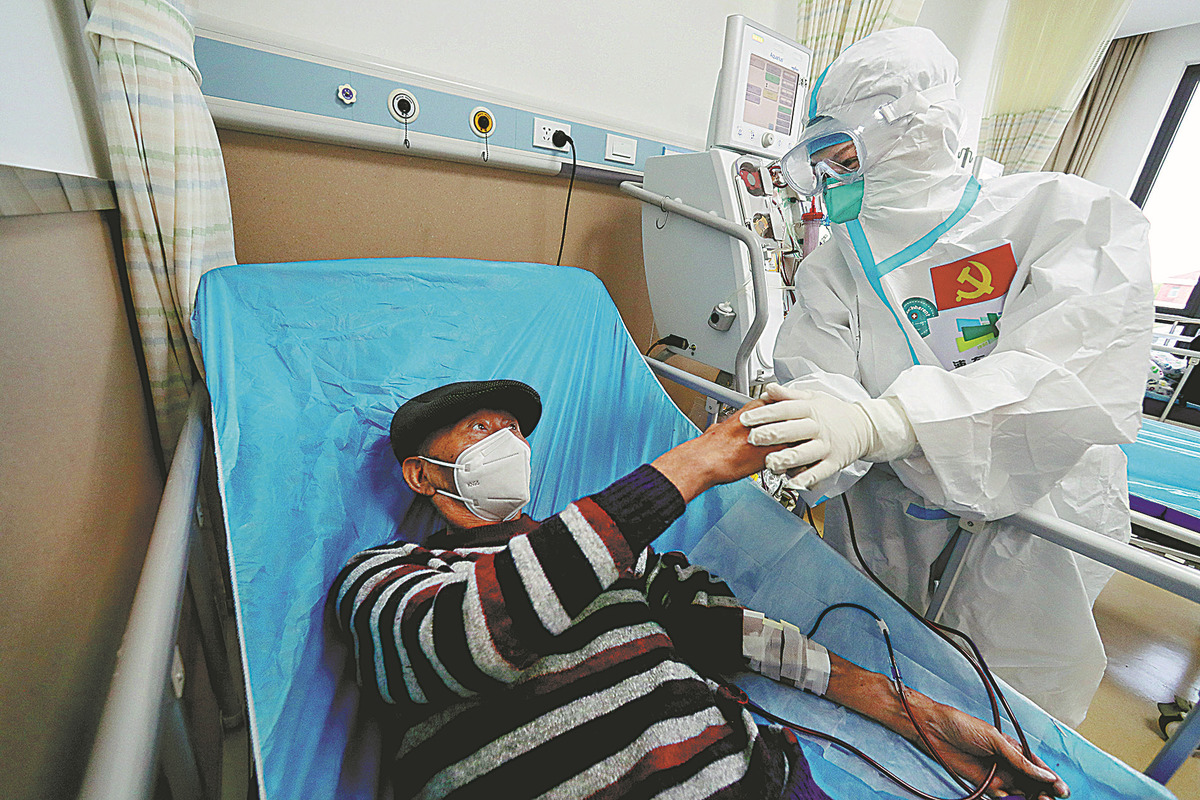Metropolis plugs gaps in special medical treatment


A weight has been taken off Zhou Caixia's mind since her mother, who suffers from kidney failure, began receiving regular treatment at a temporary hemodialysis center set up during the current outbreak of COVID-19 in Shanghai.
During the first few days of the lockdown imposed due to rising infections, Zhou became anxious because Shanghai Pudong Hospital, where her mother usually undergoes treatment, had shifted its attention to dealing with COVID cases, leading to irregular treatment for the 72-year-old.
"Simply put, I didn't know when my mother would be able to have hemodialysis and that was terrible, because regular treatment for patients in her condition is essential,"Zhou said. "So I was very worried."
Thanks to the hospital's temporary center, which opened on April 7 in Caolu community in Pudong New Area, treatment for some 500 hemodialysis patients, including Zhou's mother, is back on track.
Zhou, who has tested negative for the virus, accompanies her mother on a shuttle coach to the center for treatment every Tuesday, Thursday and Saturday afternoon.
Although the center is about an hour's drive from Huinan township, where the two women live, the resumption of regular treatment has come as a great relief, Zhou told China Daily on Tuesday as she waited for her mother to finish hemodialysis, which takes about four and a half hours each time.
"Mum just lies in bed, in quiet surroundings while being looked after by the nurses," Zhou added.
Pan Yangbin, the hospital's chief nephrologist, highlighted the importance of regular hemodialysis, saying that patients risk dying from kidney failure or other complications if treatment is delayed or missed.
He added that the center has 150 hemodialysis machines so far, and treats more than 200 patients on average a day. "For those in need of hemodialysis, regular treatment is the only way to stay alive, as their bodies are unable to eliminate toxins through urination due to kidney dysfunction," said Lai Bihong, a hemodialysis nurse at the hospital.
She added that there's great demand for the treatment in Shanghai, adding that a few other medical institutes also offer hemodialysis.
"It's my duty to provide prompt treatment, although it isn't easy during this ongoing outbreak," Lai said. "But I put patients first, and try my best to help them."
Last week, Wu Qianyu, an official with the Shanghai Health Commission, underlined the need for patients in urgent or critical condition to be treated promptly, ordering hospitals not to turn them away even if they cannot provide a negative nucleic acid test result.
She also called for medical institutions to guarantee that emergency departments, fever clinics, hemodialysis rooms, ICUs, and obstetrics and neonatal divisions keep operating during the epidemic.
According to Wang Xingpeng, director of the Shanghai Shenkang Hospital Development Center, more hospitals and medical institutions citywide have opened fast-track channels for hemodialysis patients, offering special care or health monitoring in response.
He said that his center has added 26 temporary hemodialysis stations at 18 city-level hospitals to meet patient needs.
- Vice-chairman of CPPCC Jiangxi Provincial Committee placed under investigation
- Five trapped in flooding accident at Heilongjiang coal mine
- Long March 5 rocket deploys tech demo satellite into space
- China launches communication technology test satellite
- Spokesperson warns against aggression toward mainland fisherman
- Lhasa wetland reserve recognized as world's highest altitude wetland




































